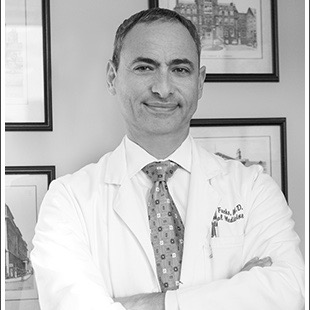I haven’t written about niacin for over a year, and like a misunderstanding of the Mayan calendar that won’t go away, niacin is in the news again this week.
You can catch up on the old news by reading my previous posts (links below) but here’s the story in a nutshell. People with high levels of a cholesterol molecule called LDL tend to have more strokes and heart attacks than people with normal LDL levels. People with low levels of a cholesterol molecule called HDL tend to have more strokes and heart attacks than people with normal HDL levels. (Does that mean that LDL causes strokes and heart attacks or that HDL prevents strokes and heart attacks? Nobody knows.) We've long known that taking niacin raises HDL and lowers LDL. That should be good, right? And in fact a study called the Coronary Drug Project in the 60s and 70s showed that in patients with a previous heart attack, taking niacin modestly reduced the risk of another heart attack.
More recently, many other medications have been proven to prevent strokes and heart attacks – aspirin, statins (a family of cholesterol reducing medicines), and beta blockers (a family of blood pressure medicines). These medicines are now in widespread use. Statins especially have very solid evidence that they greatly decrease the frequency of strokes and heart attacks, and now that some of them are available generically they are used extensively. Last year, the AIM-HIGH trial tried to discover whether patients with a history of cardiovascular disease and low HDL had better outcomes by taking niacin with a statin than by taking a statin alone. They didn't The rates of strokes and heart attacks were the same in both groups, strongly suggesting that in the age of statins, niacin has no additional benefit.
Now, when faced with a medication that has no benefit, I typically decide not to prescribe it, but not the folks at Merck. They were thinking “How can we decrease the side effects?” Why it would be valuable to decrease the side effects of a medicine without benefit is a mystery that only Mayan astronomers are likely to solve. In any case, the most common and bothersome side effect of niacin is facial flushing, so Merck came up with a tablet in which they combined niacin and a second drug, laropiprant, which prevents the flushing. This combination medicine, called Tredaptive, has been in use in Europe since 2007.
A large trial designed to win FDA approval for Tredaptive ended this week. The results won’t be formally published for some time, but Merck has already released some important tidbits. The study randomized over 25,000 patients to Tredaptive and simvastatin or to simvastatin alone. The patients were monitored for over four years. There were no differences in rates of strokes or heart attacks between the groups, but the Tredaptive group had an increase of a “serious adverse event” the details of which Merck has yet to release. In an unusual move, Merck has asked European physicians not to start new patients on Tredaptive.
This new finding should throw a wet blanket on the few remaining niacin enthusiasts. Niacin use has declined since the AIM-HIGH study and now should decline further. It has no benefit in the vast majority of patients who can tolerate statins.
Learn more:
” target=”_blank”>Merck Says Niacin Drug Has Failed Large Trial (New York Times)
My previous posts about niacin:
” target=”_blank”>Niacin Does Not Prevent Strokes or Heart Attacks
Important legal mumbo jumbo:
Anything you read on the web should be used to supplement, not replace, your doctor’s advice. Anything that I write is no exception. I’m a doctor, but I’m not your doctor.





















 More news and opinions than at a Shabbat dinner, right in your inbox.
More news and opinions than at a Shabbat dinner, right in your inbox.